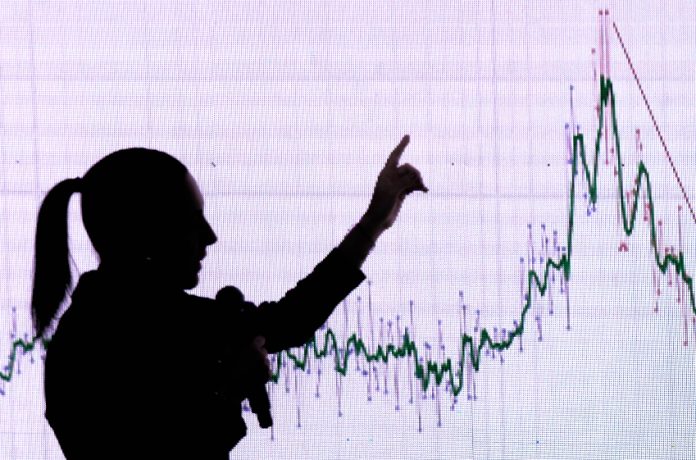Claudia Sheinbaum Pardo was elected president of Mexico in a landslide victory on Sunday, echoing the 2018 triumph of her predecessor and political ally, President Andrés Manuel López Obrador.
Sheinbaum, 61, is the first woman to win the Mexican presidency, and was previously the first woman to be mayor of Mexico City.
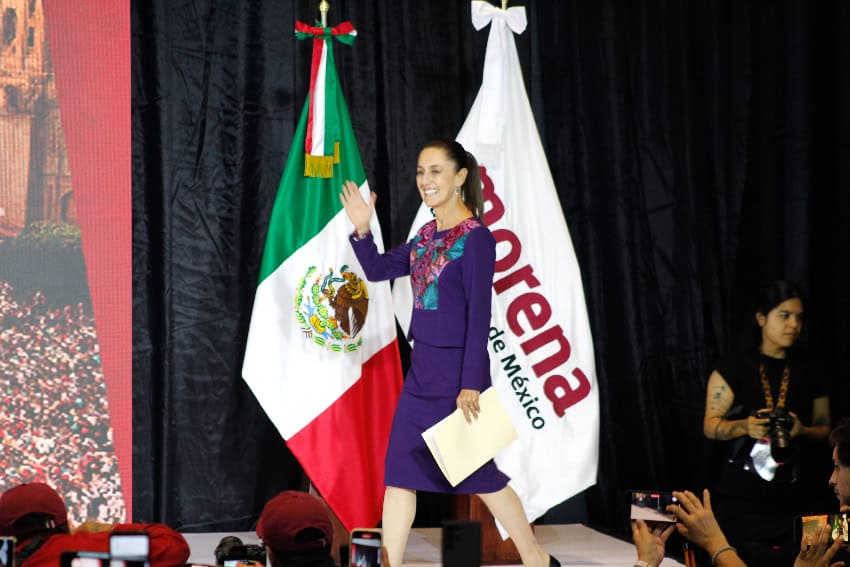
Who is Sheinbaum? How did this granddaughter of immigrants, a scientist and academic, arrive at this momentous moment in Mexican history? And what can we expect from her as president?
Growing up in a political family
Claudia was born into a secular Jewish family in Mexico City in 1962, the second of three children. Carlos Sheinbaum Yoselevitz, a chemical engineer, and Annie Pardo Cemo, a molecular biologist, were both second-generation Mexicans whose parents had fled Nazi persecution in eastern Europe.
On her father’s side, Claudia’s grandparents had emigrated to Mexico from Lithuania in the and on her mother’s side, from Bulgaria. In a 2018 NPR profile, Claudia says she celebrated Jewish holidays at her grandparents’ but “her home life was secular.”
The Sheinbaum Pardo family may not have been religious, but they were definitely political. Both of Claudia’s parents participated in the student movements of the 1960s and her father was a member of the Mexican Communist Party.
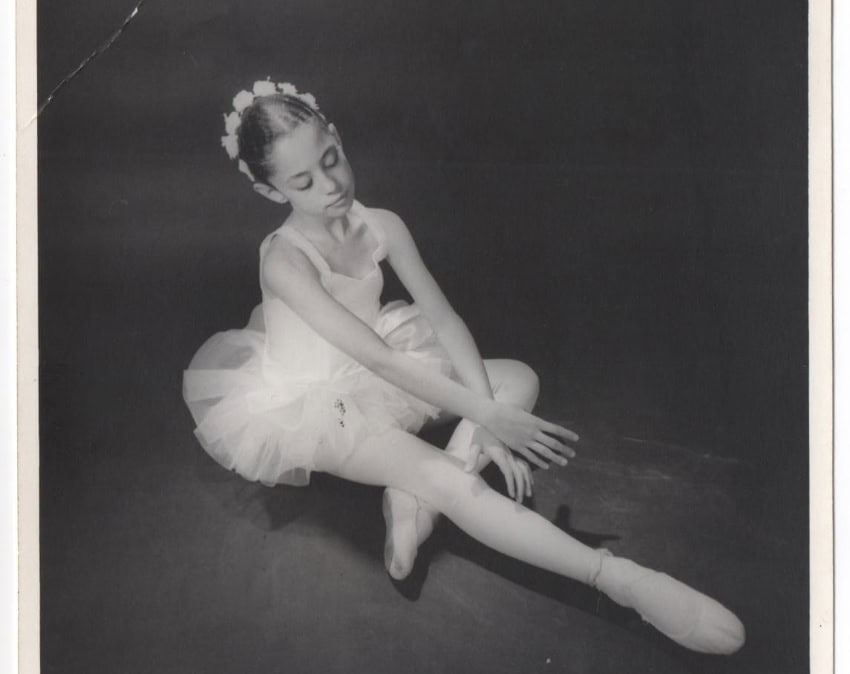
Silvia Torre, a friend of Annie Pardo, said on the Política Deja Vu podcast that the children grew up in “an atmosphere of political criticism” and that the Sheinbaum family sometimes took their youngsters to visit political prisoners at the notorious Lecumberri prison on the weekends.
Claudia was only six years old when Mexican armed forces massacred students in Tlatelolco in October 1968, but the tragedy made an indelible impression on her psyche — and that of the nation. At the third presidential debate, Claudia said “we are the children and grandchildren of 1968,” which was a crucible for the left in modern Mexico, the beginning of state repression and the “dirty war” that left murders, torture and disappearances in its wake.
Claudia studied ballet for 13 years, into her second year of studies at the National Autonomous University of Mexico (UNAM), but ended up choosing physics for her degree, which her brother also studied. She was an active participant in political and social causes, forming part of the larger student movement of the time, which saw its biggest moment in 1986 with the formation of the Consejo Estudiantil Universitario (CEU).
The CEU reacted strongly in response to a reform package presented by UNAM’s dean, Jorge Carpizo, that would have raised tuition and implemented more restrictions on admissions. “Our argument was that education is not a commodity, it’s a right,” said Claudia in an interview for a 2023 documentary made by her son, Rodrigo Imaz.
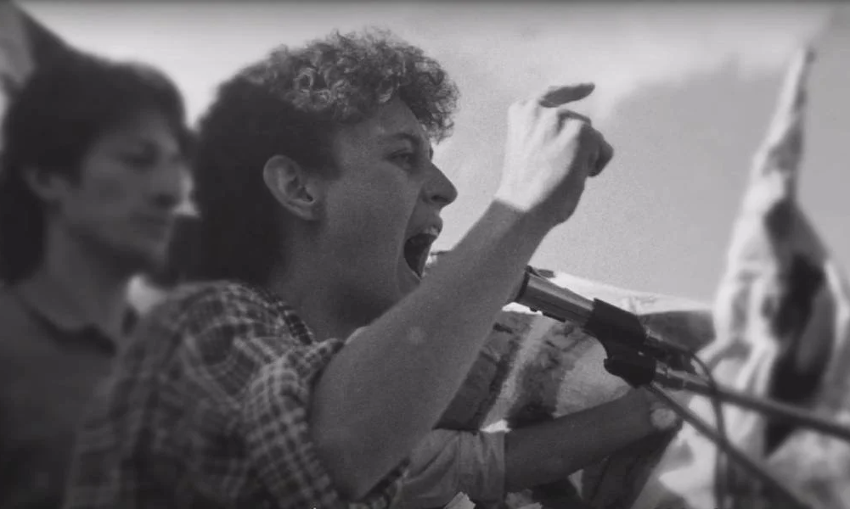
“She was someone who brought order to the endless debates, especially when it was time to make important decisions, like whether to go on strike,” said sociologist and friend of Claudia, Arturo Chávez, in a profile published in the newspaper El País. “She impressed the rest of us with her ability to be systematic and say, ‘This is the way to go.’”
Pursuing an academic career and motherhood
The CEU strike was successful, leading to the defeat of the “Plan Carpizo.” This movement became the nucleus of a new political party, the Democratic Revolution Party (PRD), whose candidate, Cuauhtémoc Cárdenas, lost to Carlos Salinas in the fractious 1988 presidential election.
Claudia married Carlos Imaz, a fellow student and activist, in 1987 and gave birth to her daughter Mariana the following year. She stayed involved in the PRD but was mostly working on her academic career at this time while raising Mariana and Rodrigo, her husband’s young son from a previous marriage.
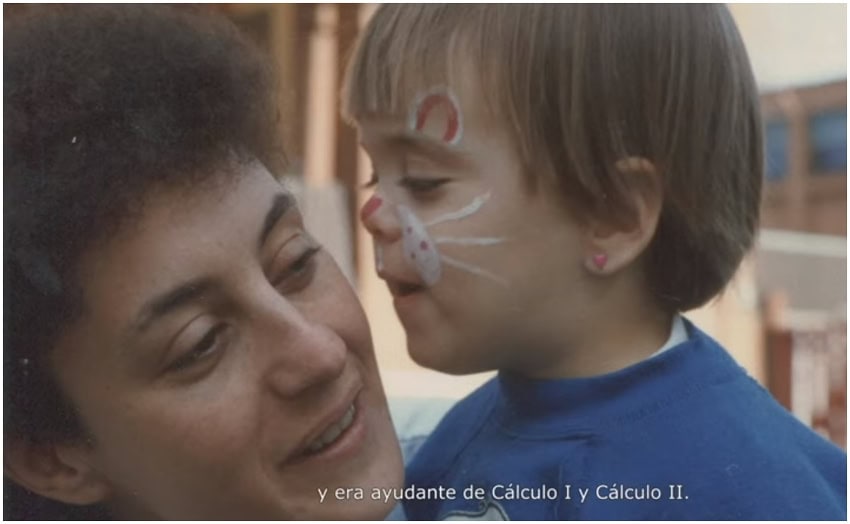
She completed her masters in energy engineering at UNAM and went with her family to UC Berkeley for her doctorate. When she returned to Mexico four years later, she joined the faculty of UNAM’s Institute of Engineering.
Claudia Sheinbaum’s first foray into government
In 2000, when Andrés Manuel López Obrador became the mayor of Mexico City on the PRD ticket, he started looking for people with technical expertise — and political loyalty — to join his government. He asked Claudia to be Environment Minister and to work on pollution problems in the city.
Claudia would be given another mission as part of AMLO’s team: coordinate construction of the second level (“el segundo piso”) of the massive periférico or ring road that hugs Mexico City. The project, completed in 2005, was one of the most significant roadworks in Mexico City in decades, designed to alleviate congestion that was causing a concentration of emissions.
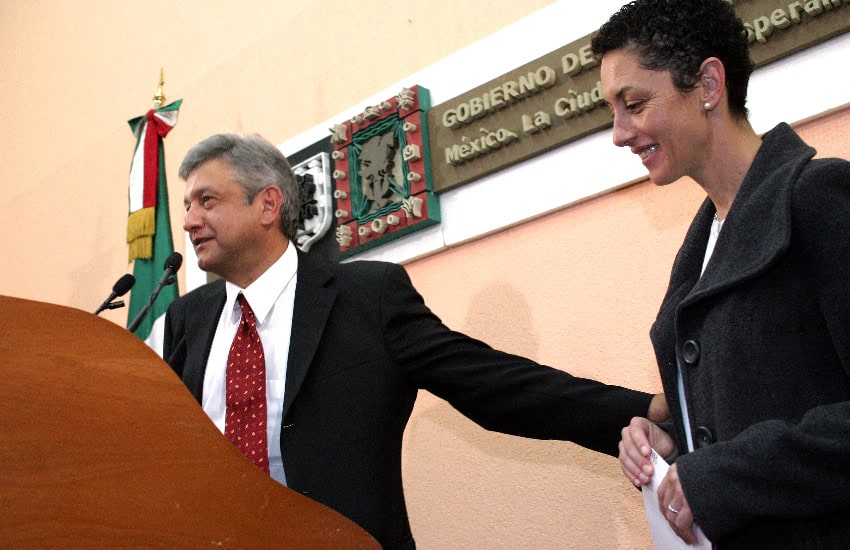
It wasn’t without controversy, however, with critics alleging a lack of transparency throughout the project and excessive costs. The term “el segundo piso” would become a slogan during Claudia’s 2024 presidential campaign, alluding to her promise to build the “second story” of AMLO’s “cuarta transformación,” or fourth transformation of Mexico.
It was during this time that Claudia experienced her first media scandal: A video surfaced in 2004 of her husband, who served in the upper echelons of the PRD, receiving cash from an Argentinian businessman. This was part of a series of videos showing similar circumstances involving people close to López Obrador, alleged to be a conspiracy by AMLO’s political rivals. Imaz accepted responsibility and said the money was for PRD campaigns. He was convicted of electoral crimes but later exonerated for lack of evidence. Imaz resigned and didn’t return to an active political life. He and Sheinbaum separated in 2016.
Sheinbaum continued by AMLO’s side when he ran for president for the first time in 2006. She became his campaign spokesperson after his controversial and very narrow loss to PAN candidate Felipe Calderón, and was instrumental in the investigation of the electoral fraud that AMLO and his team claimed had resulted in his defeat.
In 2007, Claudia contributed to the U.N. Intergovernmental Panel on Climate Change (IPCC), which won a Nobel Peace Prize that same year. In the aftermath of López Obrador’s second loss representing the PRD in the 2012 presidential election, Claudia was instrumental in the foundation of the new political party AMLO decided to form. Claudia participated in the brigades and assemblies that went door to door raising awareness about their new party, named the National Regeneration Movement (Morena).
From Tlalpan to jefa de gobierno
In 2015, Claudia represented Morena in the race for mayor of the borough of Tlalpan in Mexico CIty and won. Her time in office was marked by the 2017 Puebla earthquake, and particularly the collapse of the private Enrique Rébsamen school which killed 19 children and seven adults. Her government received criticism for allowing the school to continue to operate despite apparent infringement of zoning regulations.
In 2018, Claudia decided to run for mayor of Mexico City on the Morena ticket and won with 47% of the vote, achieving her first historical milestone as the first woman elected to govern the megalopolis. “Don’t think because you see this skinny scientist up here that we won’t be strong enough to take on the subject of crime fighting,” Claudia was quoted as saying in a speech shortly after her win.
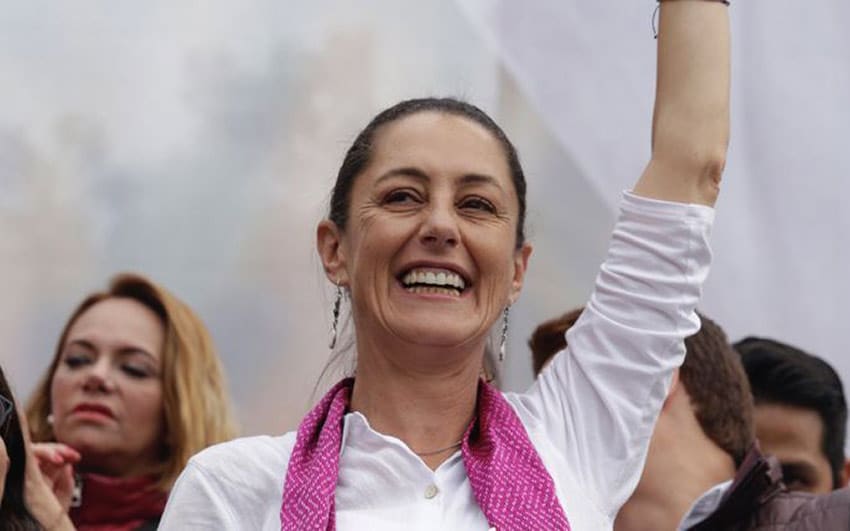
While Claudia’s term included major public transportation projects, a massive solar panel installation, digitalization of city bureaucracy, a new public school scholarship program and reductions in crime, two dark events marked her tenure: the COVID-19 pandemic, and the collapse of the elevated Line 12 of the Metro.
While Mexico City suffered a large number of deaths from COVID-19, particularly during the second wave in 2021, Claudia’s management was overall considered prudent and effective and often contrasted with federal public health policies. The city’s vaccination campaign got off to a difficult start in late 2020, suffering from a scattered layout and shortages of vaccines, so Claudia pivoted. Instead of installing many small vaccination sites spread out over the city, she directed the establishment of six mega vaccination centers, which proved to be far more effective. In fact, the federal government subsequently applied the same strategy nationwide.
On May 3, 2021, an elevated section of Line 12 of the Metro collapsed, killing 26 people and injuring around 100. Claudia’s government initiated an investigation (eventually 10 people were arrested and charged, though they have not been tried) and brought in a Norwegian firm to determine the causes of the accident. The firm faulted both flaws in the line’s construction (beginning in 2008) and poor maintenance (particularly after the 2017 earthquake), spreading responsibility for the tragedy across several mayoral terms and mayors. Claudia rejected the report as “poorly executed” and “biased.” In January, interim mayor Martí Batres reopened the repaired Line 12.
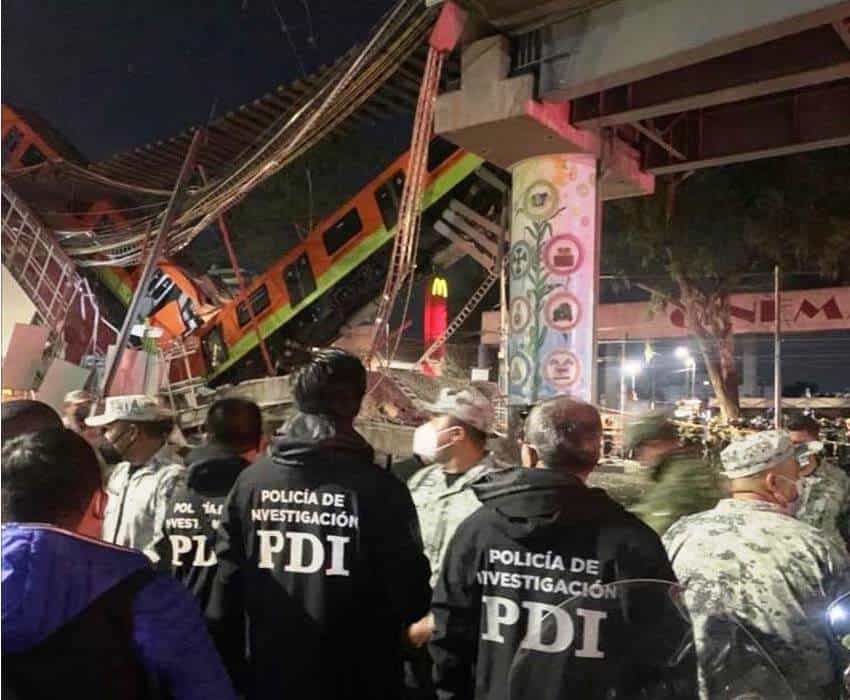
In discussing her time in office as mayor and her relationship with AMLO, Claudia reflected in a recent interview, “I hope that the people of Mexico feel represented by me, that’s the objective. … President López Obrador is a very respectful man. He never spoke to me by telephone when I was mayor to tell me [what to do], to give me instructions. Never,” she said.
Running for president
Claudia resigned from her position as mayor in June 2023 to compete for the presidential candidacy of Morena. Her opponents were all men, some who had come up in the CEU movement of 1986 (Morena party president Mario Delgado, Senator Ricardo Monreal), and others who had significant experience in government (Marcelo Ebrard, former foreign affairs minister and mayor of Mexico City). Claudia won the party’s nomination in September, with an average of 39.4% support across five polls, and managed to avoid internal ruptures within Morena despite Ebrard’s initial rejection of her victory.
“As an adversary, she is a generous woman. I never felt aggression or hostility from her,” said Ricardo Monreal. “…And in the end, no one left [the party], no one deserted, no one went over to the opposition.”
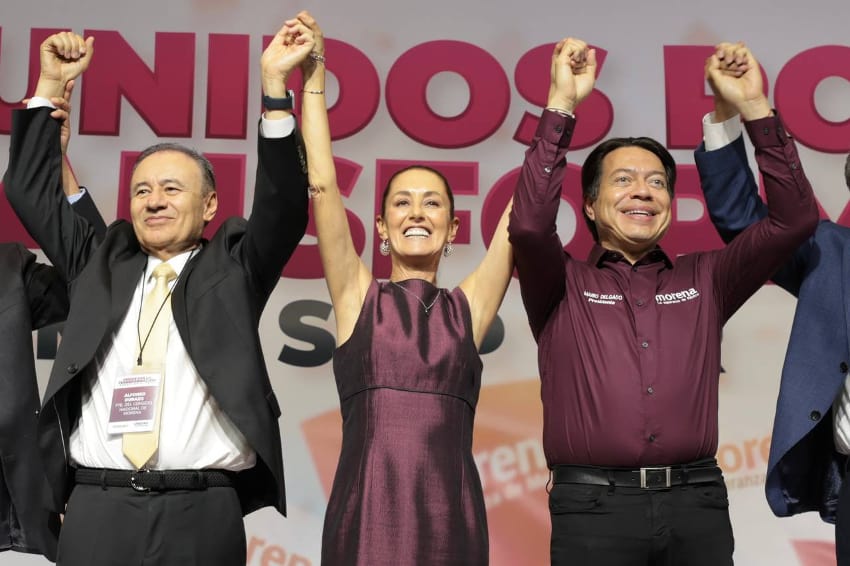
While on the campaign trail, Claudia was often described as disciplined, never going “off-script” from her role as the leader of AMLO’s movement. Polls consistently put her ahead of her closest rival, Xóchitl Gálvez of the PAN-PRI-PRD coalition, but based on election results, even the polls underestimated her popular support with voters.
Last year was also a busy one in Claudia’s personal life. She became a grandmother in May 2023 when her son Rodrigo’s child, Pablo, was born. And she tied the knot with Jesús Tarriba Unger, a fellow physicist and risk analyst at the Bank of Mexico who she knew from college years. They reconnected in 2016, and were married in a small civil ceremony in November in Mexico City.
What to expect of Claudia as president
Claudia is often described as serious, direct and highly demanding of her team.
“She feels like she has to get her hands dirty … it was very inspiring to see her do the same [tasks] as everyone else,” said her collaborator Pepe Merino in El País, referring to her responding personally to calls to Mexico City’s COVID-19 hotline during the pandemic. “She has a commitment and ethical and moral clarity, leaving you with no doubts or ambivalence.”
“She has a certain maternal aspect, in a sense that she is caring, but it’s clear that she is the one who makes decisions … She navigates these two things gracefully, like a dancer,” says academic Renata Turrent, a member of her campaign team.
Journalist and biographer Jorge Zepeda Patterson says Claudia means “fewer microphones and more Excel” for the 4T movement. “She is a mix of scientific thinking with a personality of doing things well, of meeting goals and meeting the level of responsibility that is demanded, and that is her drive for getting up every day, not like López Obrador’s, which is how he will be seen by history.”
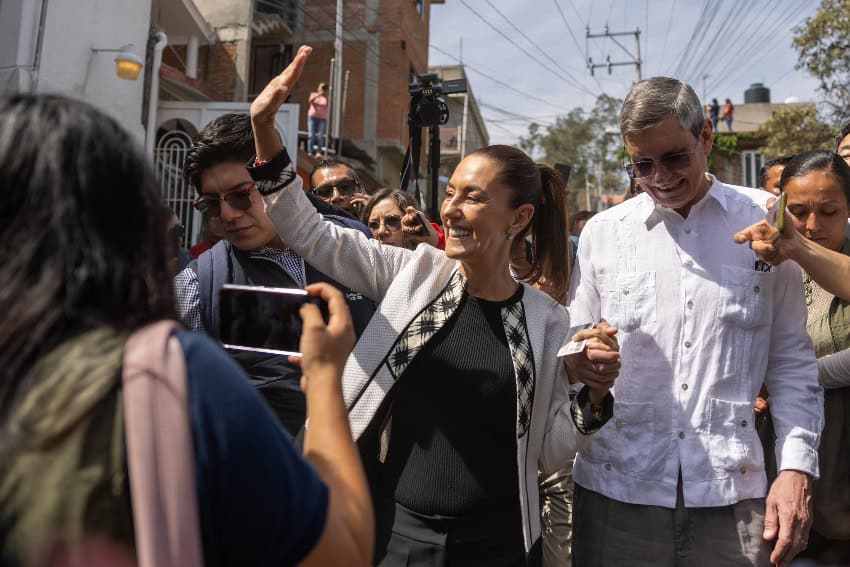
When asked in a recent interview by Fernanda Caso (who described her as “friendly, but reserved”) how she would like to be remembered if she became president, Claudia said: “I want to be remembered as a good president, not just the first woman to be president…to leave the country even better than we found it … and to make even more progress against poverty and [Mexico’s] tremendous inequalities.”
To read more about Claudia’s platform and policy proposals, you can check out the following Mexico News Daily stories:
Claudia Sheinbaum talks security, water and more in El Financiero interview
Claudia Sheinbaum pledges to ‘accelerate’ transition to renewable energy if elected
Sheinbaum: Nearshoring will drive growth in next presidential term
Written by chief news editor Kate Bohné (kate.bohne@mexiconewsdaily.com). You can read more of her work on her Substack, The Mexpatriate.
